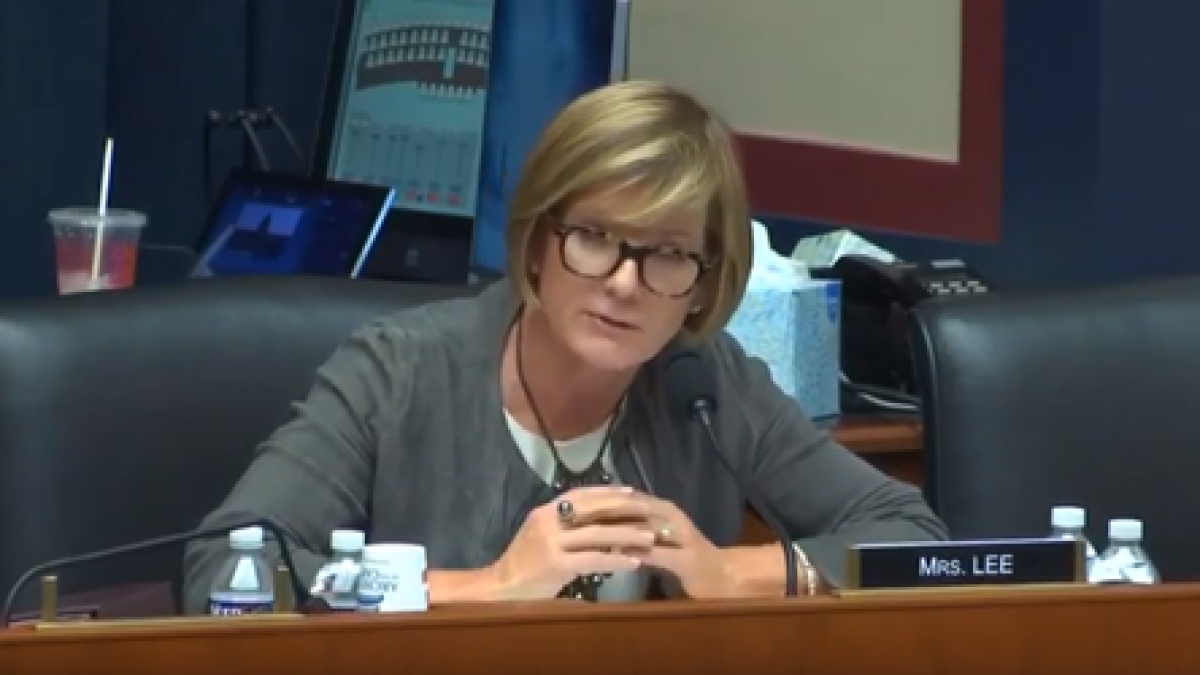***VIDEO FILE INCLUDED*** Rep. Susie Lee: ‘There Are Always Cases that Affirm the Need for Robust Worker Protections’

CLICK IMAGE OR HERE TO WATCH ON YOUTUBE
CLICK HERE TO DOWNLOAD VIDEO FILE
Washington, D.C. – Member of the House Committee on Education and Labor U.S. Rep. Susie Lee (Nev.-03) addressed the Civil Rights and Human Services Subcommittee and questioned Equal Employment Opportunity Commission officials about the importance of worker protections against discrimination—particularly age-based discrimination—and employment equity across industries. She highlighted the story of one of her constituents, Debra Jeffries, a cocktail server in Las Vegas whose Culinary Workers Union Local 226 contract guarantees certain protections in the workplace that not all employees, especially women, are afforded.
In her remarks, Rep. Lee said the following to the Committee:
"We have well known industries that drive our economy, and as every industry is unique, there are always cases that affirm the need for robust worker protections and an overseer of equity in the workplace. As an example, we have Debra Jeffries who is a cocktail server at Bally's Las Vegas Hotel and Casino benefitting from a union contract through Culinary Union 226. She's been able to work no matter her age, which has been an important for many companies within the industry who consider it when they're hiring. And as an example, another local casino was just sold and its cocktail servers were all terminated and not hired because of their age. Debra obtains the same pay as her counterparts and will eventually retire with security and dignity."
The following is a statement from Debra Jeffries regarding her current employment situation, which is protected by her Culinary Workers Union Local 226 contract:
"I definitely wouldn't still be in my job if I weren't a member of the Culinary Union. Having a union contract protects workers like me. As a cocktail server who is 64-years-old, my union contract enables me to continue working—no matter my age.
"Cocktail servers at another casino decided not to be union, and shortly after their casino was sold, they were all fired and told to re-audition for their jobs. None of them made it through the hiring process because they were all over 30-years old! Non-union workers as they age are also under a lot of pressure to look a certain way and even maintain their weight.
"After I had breast cancer, I was able to easily negotiate a change in my uniform to better cover my scar. As a union worker, I have direct input into my uniform and cocktail servers have the opportunity to wear a jacket if we want to wear over our uniform vs. just a strapless dress.
"My Culinary Union contract ensures I am treated with respect and that I don't face age discrimination or any other unfair treatment or expectations. I'm paid the same as men, I have seniority at work and a pension so I can retire with dignity one day, and I can't be denied work opportunities or promotions due to favoritism or my age."
BACKGROUND: This week, Rep. Lee, Committee on Education and Labor Subcommittee on Civil Rights and Human Services Chair Suzanne Bonamici (Ore.-01), and Rep. Susan Wild (Pa.-07) introduced the Dignity in Aging Act, which reauthorizes and strengthens the Older Americans Act. Along with funding vital services for more than 11 million older Americans, the Older Americans Act provides protections from age-based discrimination in the workplace, and funds legal services, elder abuse services, and other important resources to fight age-based discrimination. The House Education and Labor Committee unanimously approved the bill on Wednesday, Sept. 18th.
As the population of older Americans has grown, funding for OAA has not kept pace. In 2010, OAA funding was $42.95 per senior. Today, it is $27.25 per senior. The Dignity in Aging Act is a bipartisan update to the Older Americans Act that responds to the challenges facing a growing generation of aging Americans. The bill:
- Authorizes a seven percent funding increase for OAA programs in the first year, then annual six percent increases in the following years.
- Establishes a National Research, Demonstration, and Evaluation Center for the Aging Network in the Office of the Assistant Secretary of HHS;
- Creates an initiative to coordinate federal resources to promote the independence and safety of adults living at home as they age;
- Provides more tailored support to family caregivers who play a vital role in helping again Americans maintain their independence;
- Places a stronger focus on addressing social isolation among seniors by empowering local organizations to test local solutions.
The bill is cosponsored by Reps. Elise Stefanik (N.Y.-21), James Comer (Ky.-01), and Dusty Johnson (S.D.-at-Large).
The Dignity in Aging Act fact sheet is available here.
The Dignity in Aging Act section-by-section is available here.
The Dignity in Aging Act bill text is available here.
###